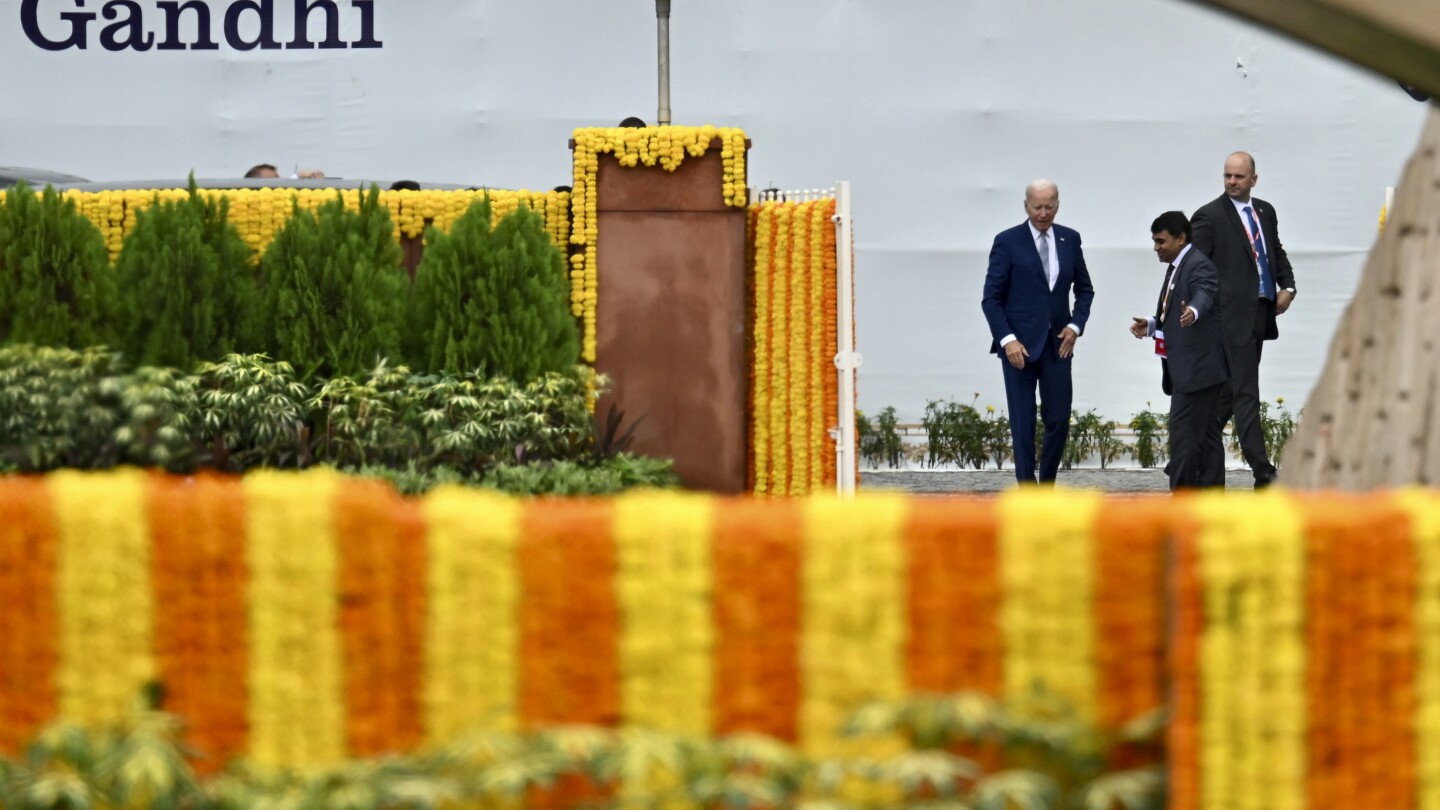NEW DELHI (AP) — G20 leaders paid their respects at a memorial site dedicated to Indian independence leader Mahatma Gandhi on Sunday — a day after the forum added a new member and reached agreements on a range of issues but softened their language on Russia’s war in Ukraine.
India, this year’s Group of 20 leading rich and developing nations host, ended the first day of the summit with diplomatic wins. As the first session began, India’s Prime Minister Narendra Modi announced that the group was adding the African Union as a member — part of the Indian leader’s drive to uplift the Global South.
A few hours later, India announced that it was able to get the disparate group to sign off on a final statement, but only after softening language on the contentious issue of Russia’s war in Ukraine.
With these major agenda items taken care of, Canada’s Justin Trudeau, Australia’s Anthony Albanese and Japan’s Fumio Kishida, among others, shook hands Sunday and posed for photos with Modi at the Rajghat memorial site in New Delhi, which was decorated with orange and yellow flowers. Modi gifted the leaders shawls made of khadi, a handspun fabric that was promoted by Gandhi during India’s independence movement against the British.
In the months leading up to the leaders’ summit in New Delhi, India had been unable to find agreement on the wording about Ukraine, with Russia and China objecting even to language that they had agreed to at the 2022 G20 summit in Bali.
This year’s final statement, released a day before the formal close of the summit, highlighted the “human suffering and negative added impacts of the war in Ukraine,” but did not mention Russia’s invasion. It cited a United Nations charter, saying “all states must refrain from the threat or use of force to seek territorial acquisition against the territorial integrity and sovereignty or political independence of any state. The use or threat of use of nuclear weapons is inadmissible.”
By contrast, the Bali declaration cited a U.N. resolution condemning “the aggression by the Russian Federation against Ukraine,” and said “most members strongly condemned the war in Ukraine.”
Western leaders — who have pushed for a stronger rebuke of Russia’s actions in past G20 meetings — still called the consensus a success, and praised India’s nimble balancing act. If the G20 hadn’t produced a final communique, it would have been the first time and a blow to the group’s prestige.
German Chancellor Olaf Scholz told reporters it was significant that Russia had signed on to the agreement that mentioned the sovereignty and territorial integrity of Ukraine.
Russian negotiator Svetlana Lukash described the discussions on the Ukraine-related part of the final statement as “very difficult,” adding that the agreed text had a “balanced view” of the situation, Russian media reported.

